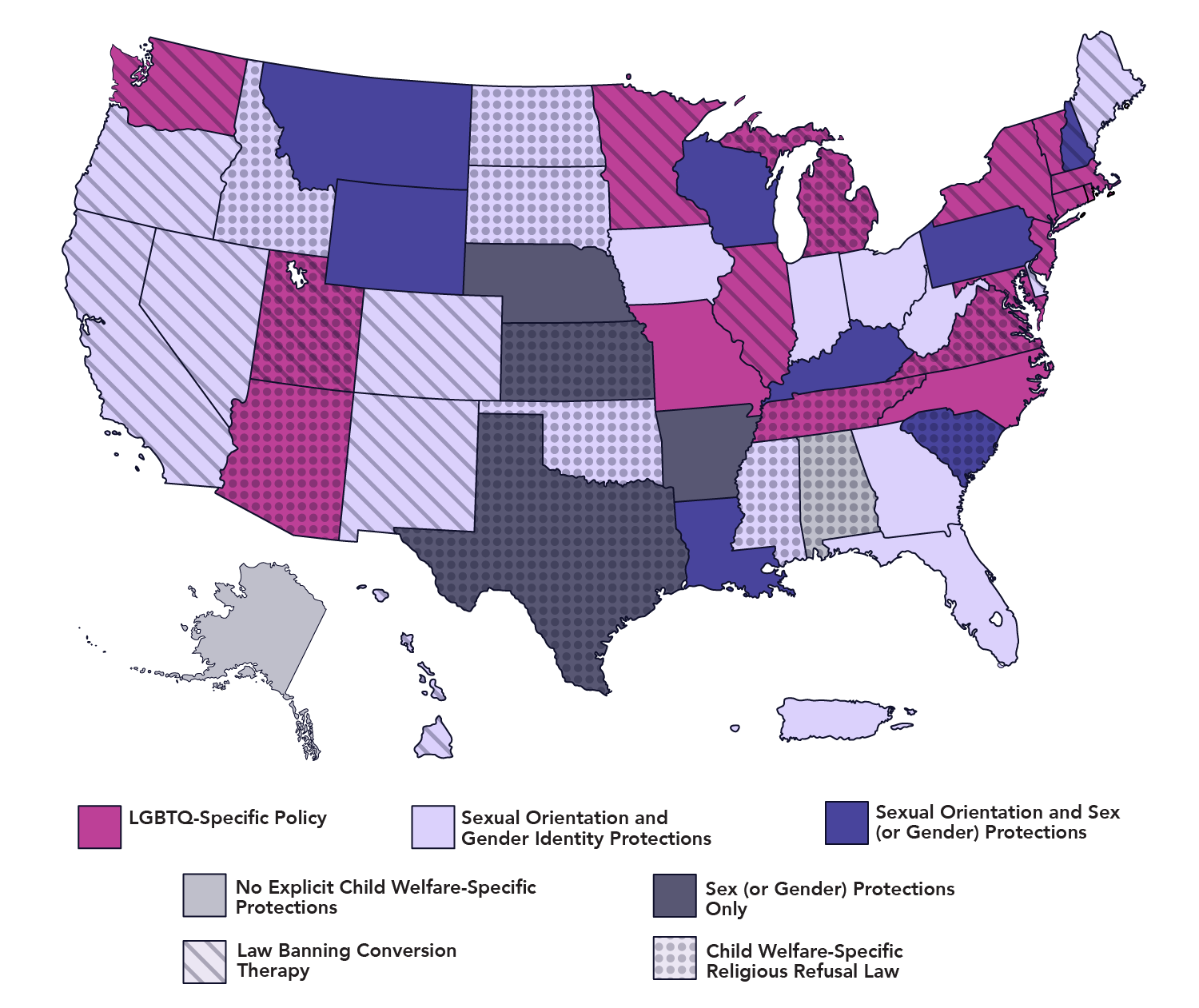State-by-State Analysis of Child Welfare Systems
This map and summary outlines state protections in the nation’s child welfare system. Scroll down to select your state and find it’s specific information.
The information in the chart below is a summary of explicit state-based statutory-, regulatory- and policy-based protections, where they exist, against discrimination on account of sexual orientation, gender identity and gender expression (“SOGIE”) in the nation’s child welfare system. In jurisdictions without explicit SOGIE protections, the authors have highlighted where youth are explicitly protected from discrimination on account of sex or gender as courts continue to clarify that that sex- or gender-based discrimination includes discrimination on account of gender identity or gender stereotyping. States marked with an asterisk (*) have a policy specific to upholding the rights of lesbian, gay, bisexual, transgender, questioning and gender-nonconforming (“LGBTQ+”) youth in care, which includes information regarding practice guidelines in addition to a SOGIE-inclusive nondiscrimination clause.
In addition to explicit nondiscrimination protections found in child welfare-specific statute, regulation or policy, youth in state custody have constitutional rights to due process and equal protection. In some states, counties and cities, state or local public accommodation or human rights laws or ordinances may offer protections to the extent that those measures apply to all or part of the child welfare system. Some child welfare systems are county-based, and due to the large volume of counties in the United States, we have not included nondiscrimination policies at the county level.
Where available, we provide information regarding rights of children in foster care even if they are not SOGIE-inclusive. We also list grievance procedures and ombudsman offices. If LGBTQ+ youth in care are being mistreated or experiencing discrimination, administrative complaints may serve as a mechanism for addressing harmful treatment, among other advocacy options.
The authors have attempted to gather all available information, but this is likely not an exhaustive list. Please contact Amy Cook, acook@lambdalegal.org, if you notice an error or find that we missed a relevant statute, law or agency policy in your jurisdiction.
Alabama | Alaska | Arizona | Arkansas | California | Colorado | Connecticut | Delaware | District of Columbia | Florida | Georgia | Guam | Hawaii | Idaho | Illinois | Indiana | Iowa | Kansas | Kentucky | Louisiana | Maine | Maryland | Massachusetts | Michigan | Minnesota | Mississippi | Missouri | Montana | Nebraska | Nevada | New Hampshire | New Jersey | New Mexico | New York | North Carolina | North Dakota | Ohio | Oklahoma | Oregon | Pennsylvania | Puerto Rico | Rhode Island | South Carolina | South Dakota | Tennessee | Texas | Utah | Vermont | Virginia | Washington | West Virginia | Wisconsin | Wyoming

